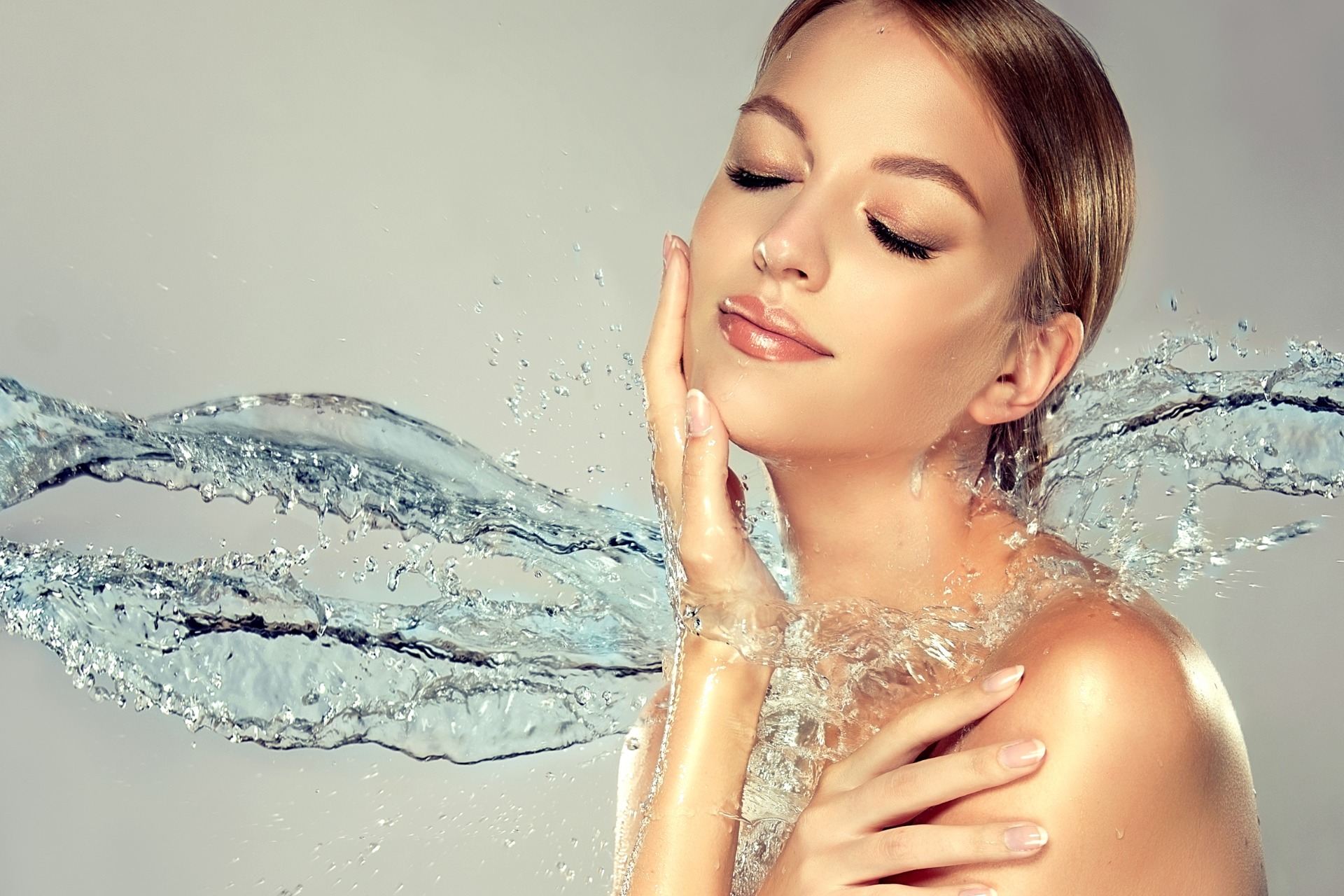
Water is often called the elixir of life—and for good reason. Hydration plays a crucial role in nearly every bodily function, from regulating temperature to flushing out toxins. Yet one area where its benefits are often underestimated is skin health.
If you’ve ever wondered whether drinking more water really improves your complexion or why hydration is vital to your body’s well-being, this guide breaks it all down. From glowing skin to a stronger immune system, staying properly hydrated is one of the simplest yet most powerful habits you can adopt.
Why Hydration Matters for Overall Health
Water makes up about 60% of the human body, and every system depends on it. Hydration affects everything from energy levels to digestion and brain function.
Key Health Benefits of Hydration:
- Supports Digestion: Water helps break down food and keeps the digestive system running smoothly.
- Regulates Body Temperature: Through sweat and respiration, hydration keeps your body cool.
- Boosts Brain Function: Even mild dehydration can affect concentration, memory, and mood.
- Flushes Out Toxins: Water helps the kidneys remove waste and maintain electrolyte balance.
- Aids Circulation: Proper hydration supports healthy blood volume and oxygen transport.
When you’re dehydrated, your body has to work harder to perform basic tasks, which can lead to fatigue, headaches, and weakened immunity.
Hydration and Skin Health: What’s the Connection?
Your skin is your largest organ—and like all organs, it needs water to function properly. When your body is well-hydrated, your skin reflects that vitality.
Benefits of Hydration for Skin:
- Improves Skin Elasticity: Well-hydrated skin is more supple and less prone to sagging or premature wrinkles.
- Enhances Natural Glow: Proper hydration helps maintain a healthy barrier function, reducing dullness.
- Reduces Dryness and Flakiness: Drinking water keeps skin moisturized from the inside out.
- Balances Oil Production: Hydrated skin is less likely to overproduce oil as compensation for dryness.
- Speeds Up Healing: Hydration supports skin repair processes and reduces inflammation.
Although topical products are helpful, internal hydration is just as important for achieving long-lasting skin health.
How Much Water Do You Really Need?
The common advice is to drink eight 8-ounce glasses of water per day (the "8x8" rule), but needs can vary based on factors like age, activity level, and climate.
General Guidelines:
- Women: About 2.7 liters (91 ounces) per day from all fluids and foods
- Men: About 3.7 liters (125 ounces) per day from all fluids and foods
Remember, about 20% of your daily water intake comes from food (fruits, vegetables, soups), while the rest should come from beverages—primarily water.
Signs You May Be Dehydrated
Even mild dehydration can have noticeable effects on your body and skin.
Common Symptoms:
- Dry or dull skin
- Headaches or dizziness
- Fatigue or sluggishness
- Dark yellow urine
- Dry mouth or lips
- Brain fog or trouble concentrating
If you’re experiencing any of these symptoms regularly, it may be a sign you’re not drinking enough fluids.
Tips to Stay Hydrated Throughout the Day
Building hydration into your routine doesn’t have to be a chore. Small, consistent habits can make a big difference.
Easy Hydration Habits:
- Start your day with a glass of water before coffee or tea
- Carry a reusable water bottle and keep it nearby
- Infuse your water with lemon, cucumber, or mint for variety
- Set reminders on your phone to take sips throughout the day
- Eat water-rich foods like watermelon, cucumbers, oranges, and celery
- Drink herbal teas or flavored waters with no added sugar
If you’re exercising or spending time in hot weather, increase your fluid intake to stay balanced.
Can You Drink Too Much Water?
While rare, overhydration (or water intoxication) can dilute essential minerals like sodium and lead to serious health issues. It’s most common among endurance athletes who drink excessively during long events.
The solution?
Aim for steady, balanced hydration. Listen to your body’s thirst cues and check your urine color—it should be pale yellow.
Hydration vs. Moisturization: What’s the Difference for Skin?
- Hydration refers to water content within the skin.
- Moisturization involves creating a barrier on the skin’s surface to prevent water loss.
Drinking enough water hydrates your skin from within, while topical moisturizers lock in that hydration externally. Both are essential for healthy, glowing skin.
Final Thoughts
Hydration is a simple, often overlooked step that can transform your overall health and skin from the inside out. From boosting energy to enhancing skin elasticity and brightness, the benefits are undeniable.
Make hydration a daily habit—just like brushing your teeth or getting enough sleep. It’s one of the easiest and most natural ways to support your body and maintain radiant, youthful skin for years to come.
Drink up—your skin and body will thank you.